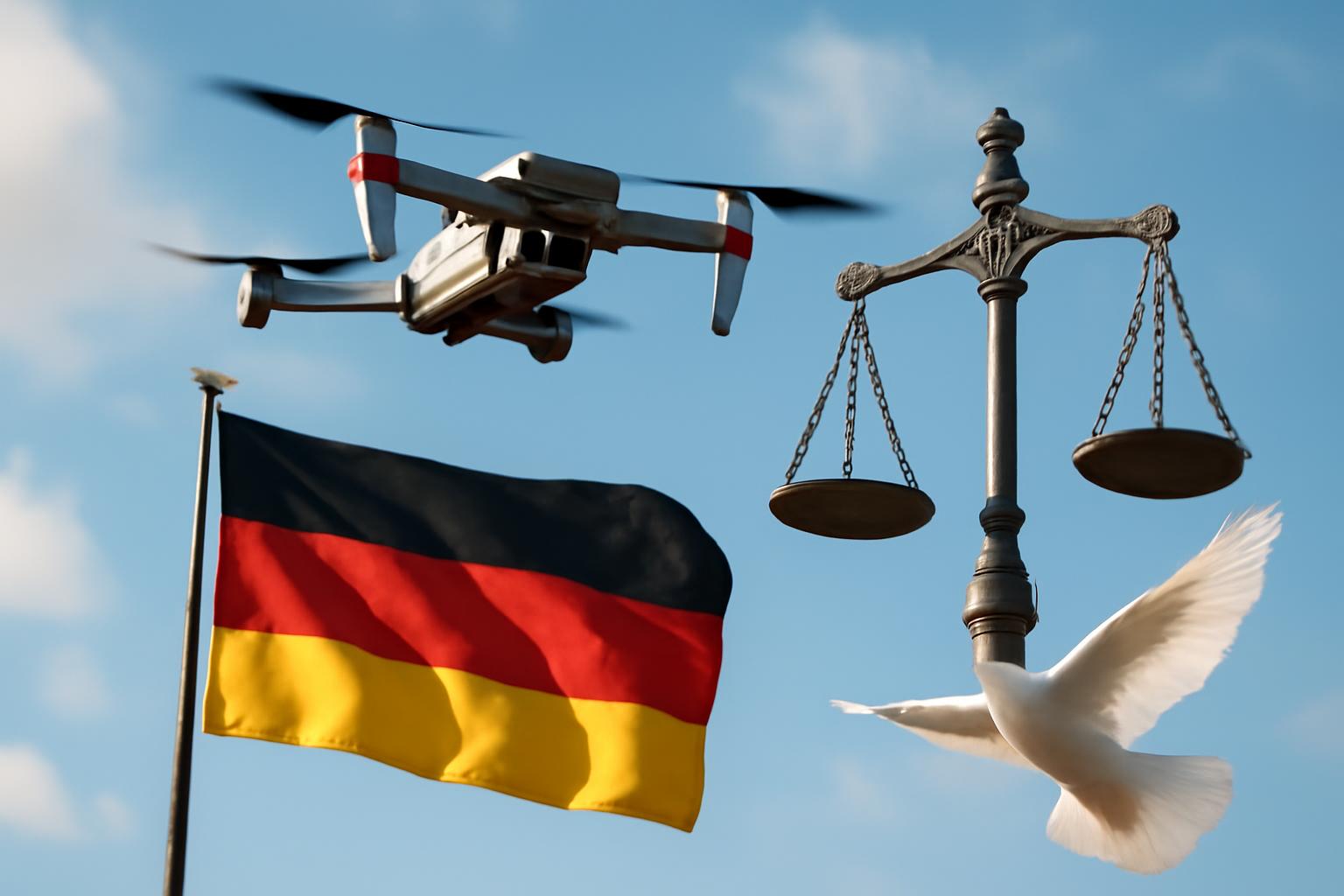Since the Ukraine war began, German caution has sharpened toward a horizon where espionage is not a distant threat but a daily insinuation. Reports describe Russian intelligence extending its reach into German air and land corridors, with drones said to monitor routes used for arming Ukraine and to scout military installations, including bases where Allied and German forces train. The aim, as interpreted by Western officials, is to understand which defense contractors supply Kyiv and how large the weapon shipments are, so that Moscow might anticipate and counter effort. Drones are claimed to have tracked eastern German routes, ports, rail facilities, and even to have observed sites near Ramstein and Geilenkirchen, among others. Berlin reiterates that protecting civilian transport networks is not the primary mission of the armed forces, while insisting countermeasures are being strengthened and interception techniques developed. The Kremlin denies the charges, NATO warns of the capacity for hybrid disruption, and the story of repeated incursions underscores a persistent cat‑and‑mouse game between a state and those who would corrupt it from without.
What is confronting us here is not simply a list of new gadgets or a tale of spying but a revealing test of the limits of our social order. Knowledge, in all its scattered, partial, and evolving forms, is never something a single policymaker holds in his pocket. It resides in countless hands—engineers, technicians, operators, jurists, and ordinary citizens who keep the wheels of commerce and defense turning. In such a world, attempts to enslave, or even to bundle, information into a centralized, all‑seeing authority invite miscalculation as surely as they invite coercion. The more a state claims to surveil and control, the more it depends on the very fabric of trust, dispersed knowledge, and predictable legal norms that allow a free society to function.
There is heroism in preparation and warning, but there is danger in turning security into a permanent state of emergency. Drones and defensive perimeters are tools, not substitutes for the tacit coordination that underwrites a peaceful order: the rule of law, credible deterrence, open inquiry, and the freedom of institutions to pivot without dissolving into panics or militarizing civil life. When a nation treats every unknown signal as policy, it risks choking the very vitality—economic, intellectual, and moral—that makes deterrence credible in the first place. And when the line between civilian space and military contingency becomes a battlefield, liberty itself becomes a bargaining chip in the art of war.
The wiser path is not to abandon vigilance but to temper it with humility about knowledge. Strengthen institutions that can absorb shocks without becoming instruments of universal suspicion. diversify and protect critical supply chains, foster transparent accountability in defense partnerships, and preserve the rule of law as the shield that legitimates any hard action. Let deterrence grow not from fear of a perfect surveillance state but from the credible promise that lawful, decentralized, and competitive social order can endure even under pressure from hostile forces.
If we are to endure these tests, we must resist the temptation to convert every frontier of uncertainty into a new authority to govern all our movements. The strength of a free society lies not in its ability to spy on every route, but in its capacity to preserve liberty while maintaining resilient, well‑informed institutions that can respond to danger without surrendering the freedoms that give a nation its character.
